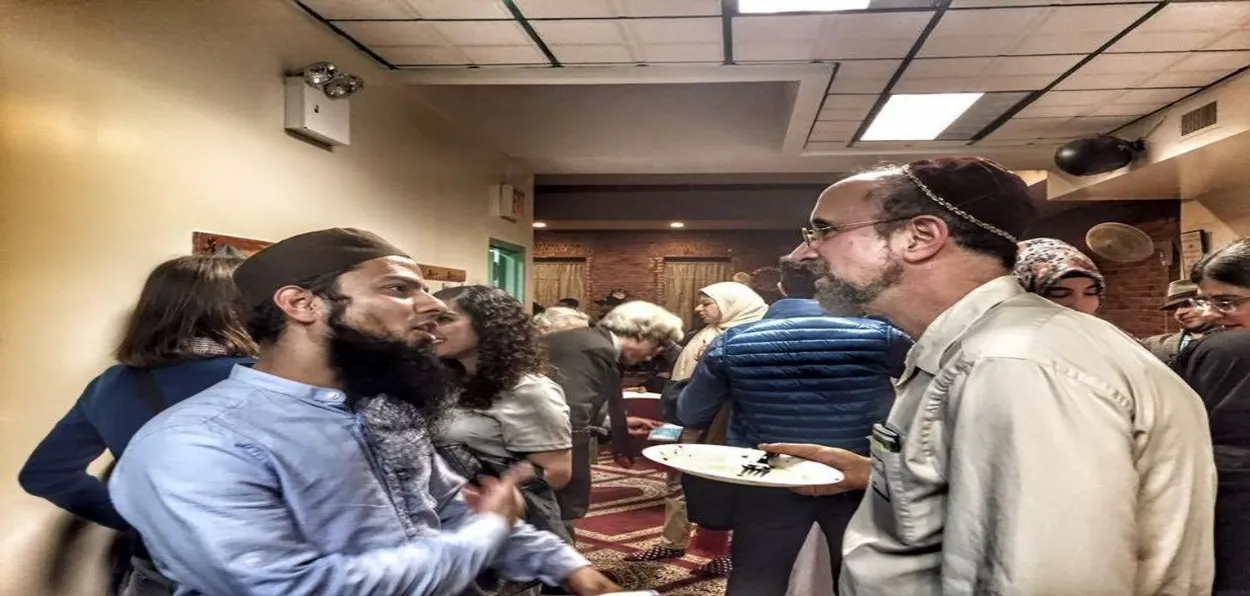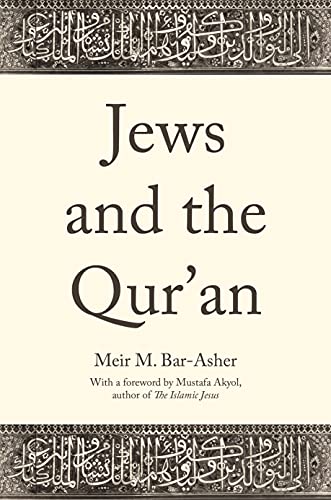
Saleem Rashid Shah
The Judeo-Christian tradition of the West highlights the connection between Judaism and Christianity. However, its parallel Judeo-Islamic tradition is often overlooked. In his recent book, Jews and the Quran, Professor Mier M Bar-Asher of the Hebrew University of Jerusalem delves into the ties between Islam and Judaism.
In this illuminating exploration, the author unravels the historical links, theological nuances, and evolving dynamics of the relationship between Islam and Judaism. Far from a mere historical account, Bar-Asher's narrative is a thought-provoking analysis and exposes the complexity, connections, and conflicts between the two Abrahamic religions.
The book delves into the pre-Islamic era when Jews and Arabs first encountered each other in the southern reaches of the Arabian Peninsula. It says that a Jewish community once lived in Yathrib (later Medina), and was into agriculture, and trade. This revelation helps readers understand the interaction between Jews and Muslims during the formative years of Islam.
The book explores the concept of the 'people of the book,' where Jews and Christians are recognized as recipients of divine scriptures like Quran.
Bar-Asher elucidates how the 'people of the book' played a pivotal role in reinforcing Prophet Muhammad's faith, as evidenced in the Quranic verse (Q 10:94): 'If you are in doubt about what We sent down to you, ask those who recited the scripture before you.' The author underscores the esteem in which Jews were held, with women from Yathrib entrusting the upbringing of their children to Jewish families due to their perceived knowledge and adherence to the scripture.

Cover of Jews and the Quran
The ‘hijra’, marking the beginning of the Islamic calendar, is portrayed as a significant event where Prophet Muhammad sought refuge in Yathrib among the Jewish communities. Bar-Asher skillfully navigates the subsequent decade (622-632), detailing the construction of Islam, the establishment of a Muslim society, and decisive battles against its Meccan adversaries. The Battle of Khaybar in 628 AD, the last conflict between Muhammad and Jewish tribes, is dissected to illustrate the complexities of their relationship.
A distinctive aspect of the book is its examination of parallels between Jewish and Muslim law. Bar-Asher focuses on four fundamental aspects: prayer (salat), the direction of prayer (Qibla), fasting (sawm), and the fixing of the calendar. Despite differences in structure and content, the author uncovers significant commonalities in the execution of prayer, emphasizing the central role of intention (niyya) in both religions. The historical shift in the Qibla from Jerusalem to Mecca is explored, symbolizing a deliberate departure from Jewish tradition.
The exploration of fasting provides insight into the evolving practices within Islam. Bar-Asher traces the origins of fasting in the Arabian Peninsula, noting the Prophet's adaptation of Jewish fasting traditions into what would later become the central practice of Ramadan. This nuanced analysis contributes to a deeper understanding of the cultural and religious interplay between Judaism and Islam during the formative years of the latter.
The book's strength lay in its panoramic approach, encompassing Quranic depictions of Jews, the protection of minorities under Islamic rule, and divergent attitudes towards Jews within Shi’i and Sunni Islam. Bar-Asher elucidates how the Quranic origins shaped the protection of Jews under Islamic governance, challenging common misperceptions. The distinction between Shi’i and Sunni Islam regarding attitudes toward Jews adds complexity and highlights the diversity within the Islamic tradition.
Jews and the Quran is a compelling work that transcends conventional narratives. Mier Bar-Asher skillfully navigates through historical landscapes, theological intricacies, and legal parallels to weave a comprehensive account of the relationship between Islam and Judaism. The book not only contributes to a nuanced understanding of the past but also offers insights that resonate with the contemporary discourse on Islam's engagement with Judaism. It serves as an indispensable resource for scholars, students, and anyone seeking a deeper comprehension of the intricate interplay that connects these two Abrahamic faiths.
ALSO READ: Joonmoni Begum and Aamir play Krishna's parents in Ras festival of Assam
Mier Bar-Asher examines how Jews and Judaism are depicted in the Quran and later Islamic literature. He traces the Quranic origins of the protection of Jews and other minorities living under the rule of Islam and shows how attitudes towards Jews in Shi’i Islam are substantially different from those in Sunni Islam. Jews and the Quran offers a nuanced understanding of Islam’s engagement with Judaism in the times of Muhammad and his followers and serves as a much-needed corrective to common misperceptions about Islam.
Jews and the Quran; Author: Meir M. Bar-Asher, Publisher: Princeton University Press
Salem Rasid Shah is a Delhi-based independent writer.
